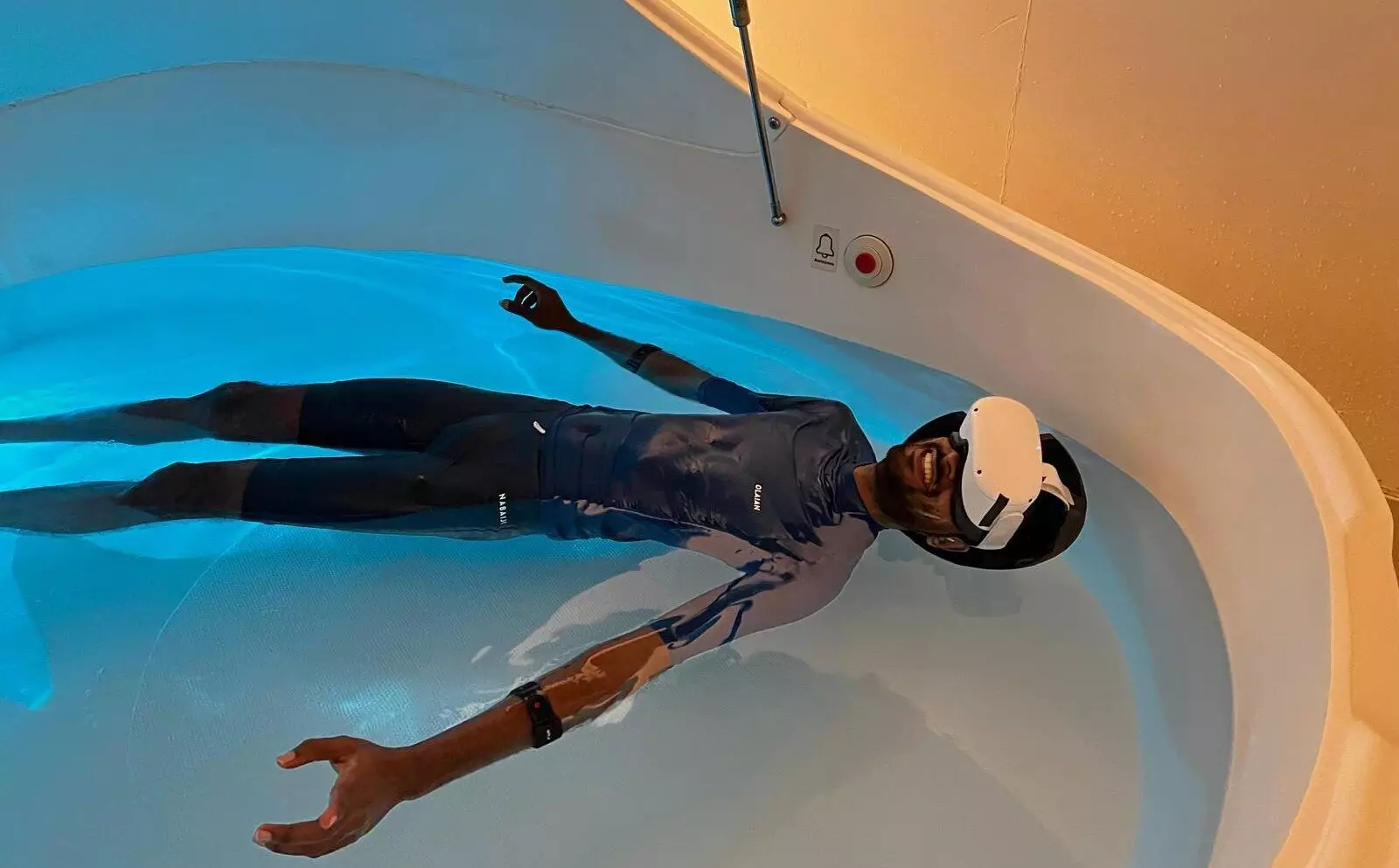In recent years, there has been a notable shift towards integrating technology into therapeutic practices, and the latest research from Monash University stands at the forefront of this evolution. Led by a team from the Faculty of Information Technology’s Exertion Games Lab, this study melds the realms of human-computer interaction and mental health, specifically aiming to alleviate the commonly experienced dread of water, known as aquaphobia. This innovative approach not only showcases the potential of virtual and extended reality systems but also highlights a crucial intersection where technology can enhance psychological well-being.
Aquaphobia is not merely a fleeting discomfort; rather, it can significantly impede individuals from participating in recreational activities that involve water, leading to a ripple effect on their quality of life. Those who struggle with this fear may also develop an irrational fear of drowning, further isolating them from enjoyable experiences. This study recognizes the need to provide accessible and engaging methods for individuals to confront and manage their fears. By leveraging technology, the researchers aimed to create an environment that could gently encourage participants to reframe their perspectives on water.
The study’s setting is as innovative as its approach: floatation tanks that offer a serene, controlled environment reminiscent of the weightlessness of being in water. Participants are invited to float in these tanks while wearing VR headsets that deliver mesmerizing auditory and visual experiences related to water. This combination is particularly striking as it allows individuals to engage with their fears in a structured yet playful manner. Each participant’s physiological indicators, including heart rate and breath patterns, are monitored via sensors integrated into the headset. This not only provides real-time feedback but also transforms participants’ bodily responses into interactive elements of the virtual experience.
The heart of the study revolves around a narrative journey through three distinct virtual water worlds guided by a fictional character known as the “water spirit.” This character serves a dual purpose: as both a reassuring guide and an interactive facilitator that promotes an atmosphere conducive to overcoming fear. By offering verbal reassurances and crafting a narrative-like experience, participants are encouraged to immerse themselves in the story, which parallels the principles of traditional exposure therapy. The journey progresses in complexity, ultimately guiding participants through stimulating and sometimes chaotic elements, like navigating cyclones. This narrative approach not only entertains but also fosters a sense of control and accomplishment.
One of the most significant findings from the Monash University research is the reduction of anxiety that participants experienced while using the XR system. The study indicated that, as participants engaged with the virtual environment, their heart rate variability showed signs of stabilization compared to floating without the VR experience. This underscores the value of immersive environments in facilitating relaxation, particularly for individuals who struggle with anxiety-related conditions. By minimizing the need for physical movements and stress-inducing interactions, it becomes evident that this technology can cater to a broad range of fears and phobias.
The implications of this research transcend the confines of aquaphobia. By demonstrating that extended reality systems can mitigate fears through engaging experiences, the potential applications in therapeutic contexts are vast. From phobias related to heights, social interactions, or confined spaces, the principles illustrated in this study could inform the development of new treatments that harness the power of playful interaction. As researchers such as Maria Montoya and Professor Florian Mueller continue to refine these technologies, it is essential to consider the ethical implications and accessibility of such treatments, ensuring they can benefit a diverse population.
Monash University’s cutting-edge research into the use of water-themed XR systems for treating aquaphobia exemplifies the transformative power of technology in enhancing mental health. This approach not only challenges traditional therapy paradigms but also offers a glimmer of hope for individuals wishing to reclaim joy in their interactions with water. As we continue to explore the intersections of technology and human experience, we may quite possibly uncover new modalities for empowering individuals to embrace their fears rather than retreat from them.


Leave a Reply